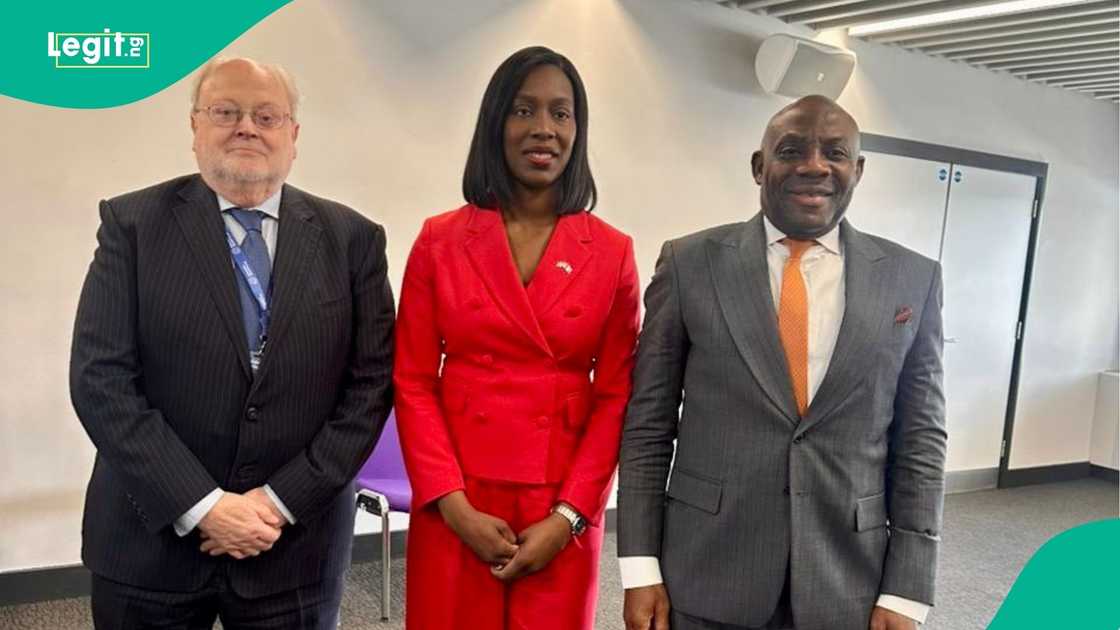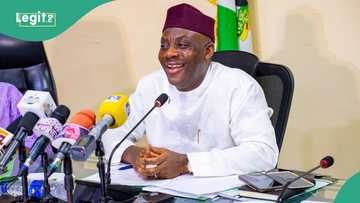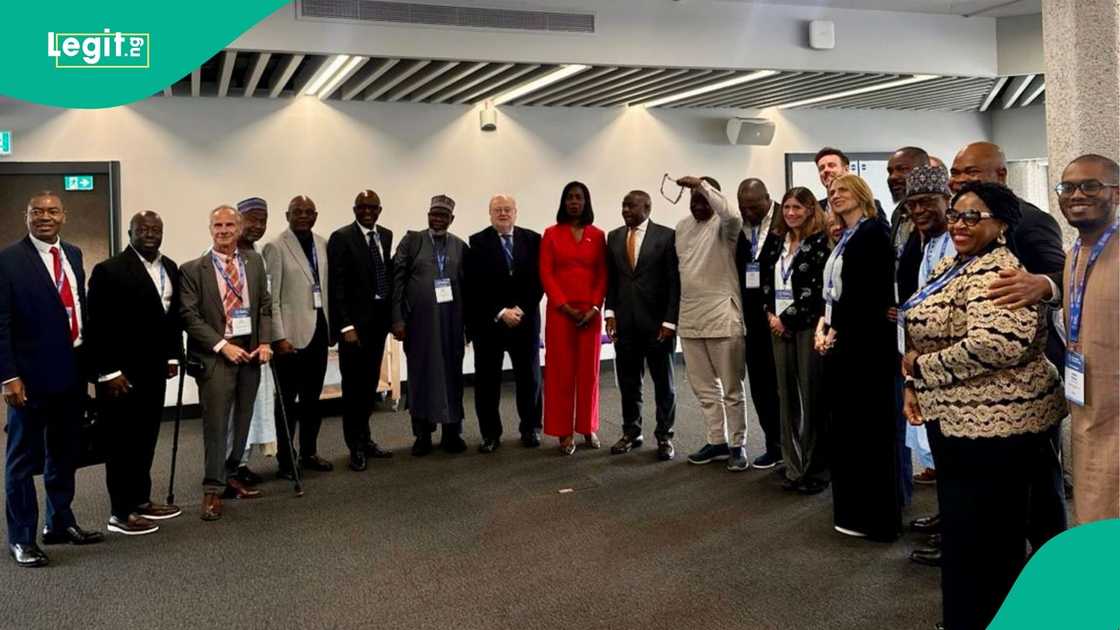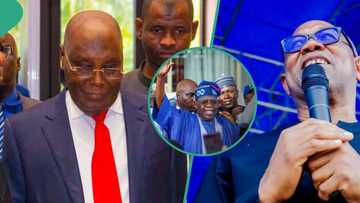Forging Global Paths: How Alausa’s UK Mission Recasts Nigerian Education for the Future
Editor’s note: In this piece, social commentator Seyi Gesinde shows how Dr. Tunji Alausa’s trip to the UK reshapes Nigeria’s education by focusing on genuine partnerships and lasting progress.
In an era marked by pressing global educational shifts and the urgent need for homegrown solutions, Nigeria’s Honourable Minister of Education, Dr. Tunji Alausa, is charting a visionary path, one that harmonises international collaboration with domestic transformation. His recent strategic mission to the United Kingdom signals not just a diplomatic engagement but a remarkable leap forward in aligning Nigeria’s education system with global best practices.

Source: Twitter
At the heart of Dr. Alausa’s UK visit was a bilateral meeting on Monday, 19th May, with the UK Secretary of State for Education, Rt. Hon. Bridget Phillipson. In what was widely seen as a high-value diplomatic dialogue, the Minister introduced a forward-thinking agenda, shifting from dependence on aid towards strategic, capacity-building partnerships in foundational education, early childhood learning, and technical training.
The trip was not merely ceremonial. It marked a shift in Nigeria’s approach to international education engagement, from reactive to strategic. Gone was the familiar request for handouts; in its place, Dr. Alausa presented a transformative proposition: mutual partnership with delivery-driven outcomes.
“The goal is no longer survival but transformation. We must build a system that works for every Nigerian child, at home, not abroad," Dr. Alausa affirmed.
This new outlook found fertile ground during a pivotal UK-Nigeria Education Roundtable co-hosted with Sir Steve Smith, the UK Government’s International Education Champion. The conversation, held behind closed doors but echoed across corridors of policy influence, produced three defining outcomes.
First, both nations affirmed a shared commitment to work hand-in-hand in transforming Nigeria’s education sector, not as donor and recipient, but as partners with equal stakes in the outcome. Second, the dialogue highlighted the urgency for real results: talk was no longer enough. Measurable actions must follow. Finally, to ensure these ambitions don’t fizzle into forgotten minutes, a Joint Working Group was proposed, tasked with maintaining alignment, ensuring continuity, and holding both sides accountable for agreed timelines and goals.
The impact of Dr. Alausa’s visit was not confined to policy rooms. On the ground, seeds of transformative change were already taking root. In Birmingham, he held strategic discussions with the Vice Chancellor of the University of Birmingham, one of the UK’s top-ranked institutions and a member of the elite Russell Group. Plans are now underway to establish a University of Birmingham campus in Lagos. If realised, the project will grant thousands of Nigerian students access to world-class education without the financial and emotional strain of studying abroad.

Read also
Education minister commended for rare show of transparency amid JAMB score glitch controversy
“This is how we fight the ‘japa syndrome,’ by raising the quality of what is available at home. We’re building ladders, not fences,” said Dr. Alausa.
The proposed campus is more than infrastructure; it is a statement of intent, signalling Nigeria’s readiness to provide competitive, globally-aligned education on its own soil.
But the Minister's vision goes beyond the university elite. In his meeting with His Royal Highness, Prince Edward, the Duke of Edinburgh, Dr. Alausa explored how Nigeria’s youth, especially those not headed for university, can be equipped with essential life skills.

Source: Twitter
The Duke of Edinburgh’s International Award Foundation, chaired by the Prince, provides young people with a developmental journey that blends skill acquisition, volunteering, physical challenges, and adventurous expeditions. Dr. Alausa sees this as a perfect complement to Nigeria’s soon-to-be-launched National Skills Enhancement and Re-tooling Initiative (NESRI), a flagship programme designed to equip out-of-school youth with technical, vocational, and entrepreneurial capabilities.
Together with the ongoing reform of Technical and Vocational Education and Training (TVET), NESRI aims to tackle unemployment by matching young Nigerians with 21st-century job demands. The Ministry intends to mainstream the Duke of Edinburgh Award into Nigeria’s public education system as a scholarship opportunity that blends personal development with global recognition.
The results of Dr. Alausa’s mission are already gaining traction. Plans for a University of Birmingham campus in Lagos signal a new chapter in accessible, high-quality tertiary education, bringing world-class learning opportunities directly to Nigerian soil.
Equally significant is the integration of Technical and Vocational Education and Training (TVET) with the National Skills Enhancement and Renaissance Initiative (NESRI), which offers a practical, demand-driven solution to Nigeria’s youth unemployment crisis.
Further deepening the impact, the new partnership with the Duke of Edinburgh Foundation provides a transformative framework for youth development, experiential, inclusive, and designed to nurture life skills beyond the classroom.
To ensure continuity and measurable outcomes, the establishment of a UK-Nigeria Joint Working Group guarantees that this mission will not end as a one-off event but evolve into a results-driven partnership anchored in shared accountability.
These are not just policy intentions, they are building blocks for a new educational order. As Sir Steve Smith rightly noted during the roundtable:
“It is time to move from dialogue to delivery. And Nigeria, under Dr. Alausa’s leadership, is ready.”
From royal chambers to roundtable negotiations, from university boardrooms to community-focused youth programmes, Dr. Alausa is forging global pathways that are firmly anchored in local relevance. With sustained political will and clear execution, Nigeria may soon emerge, not just as a beneficiary of global aid, but as a thought leader in education reform.
Seyi Gesinde is an award-winning journalist, political scientist and social commentator.
Disclaimer: The views and opinions expressed here are those of the author and do not necessarily reflect the official policy or position of Legit.ng.
Proofreading by James Ojo, copy editor at Legit.ng.
Source: Legit.ng





